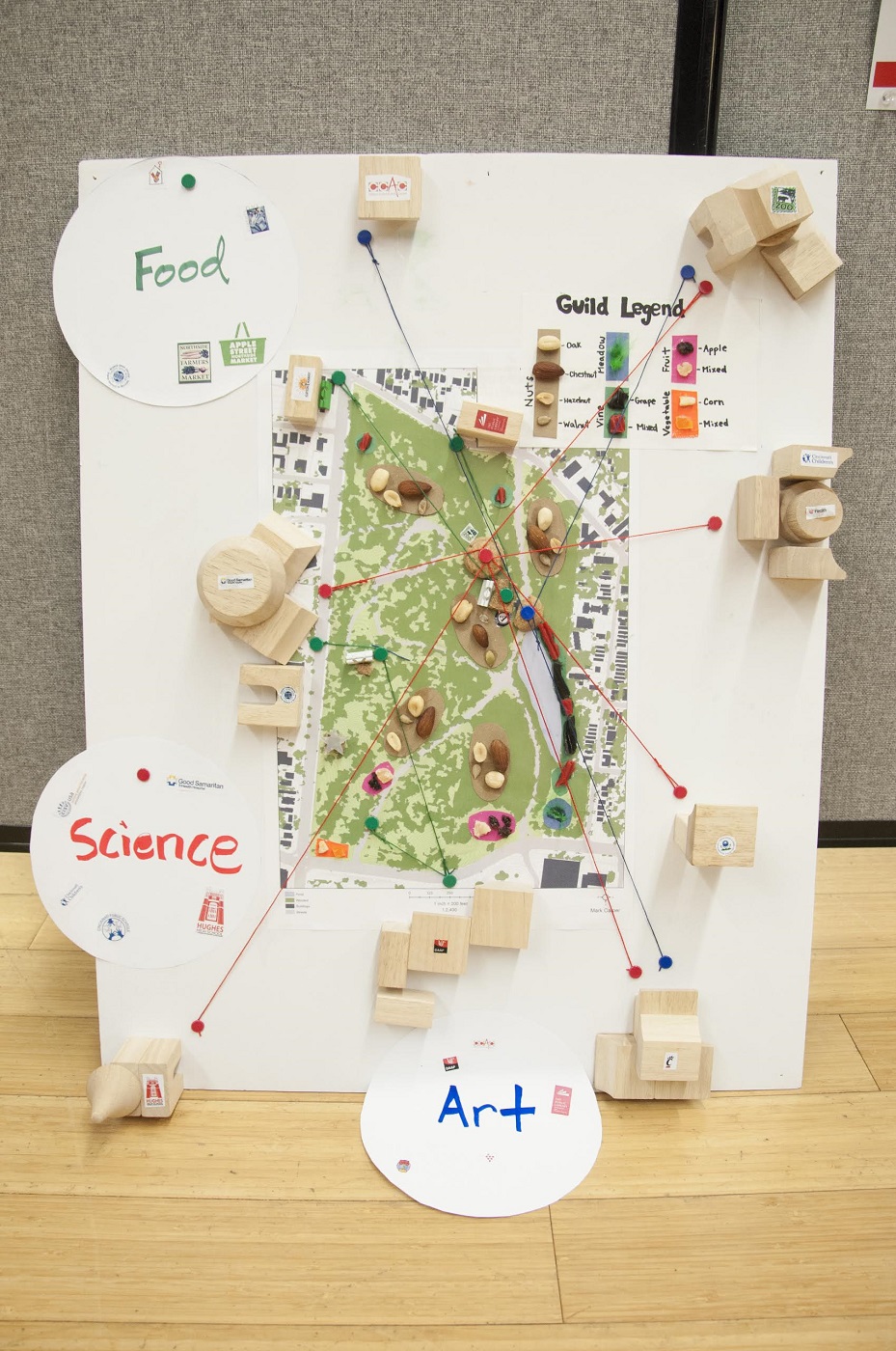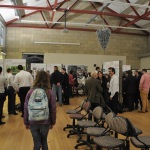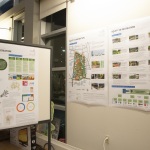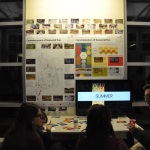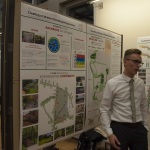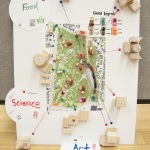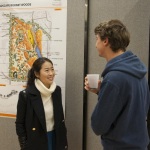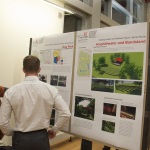On December 4, the University of Cincinnati Niehoff Urban Studio hosted an end of the semester open house to showcase the final work of students in graduate planning, civil engineering capstone, and a multi-disciplinary freshman UC Forward seminar.
There were three classes offered at the Studio, located in Corryville, during the Fall Semester that focused on understanding and improving Burnet Woods. The aim, course leaders say, was to begin to produce a future vision for the 89-acre park.
City officials first began discussing an overhaul of Burnet Woods in 2007, but a lack of funding at the time doomed the project. However, Mayor John Cranley (D) made the project a priority in his inaugural State of the City Address, saying that the park, located immediately north of the University of Cincinnati’s main campus, could help make the uptown area an even greater destination.
“Burnet Woods is an underutilized gem in our parks system,” Cranley said in a statement. “It’s nice now, but it could be great.”
That caught the attention of UC President Santa Ono, along with the Uptown Consortium who requested that the studio work on the subject in consultation with community representatives and other stakeholders uptown. In addition, staff of the Cincinnati Park Board, who have sole control over what will happen with the park, have been engaged with the studio throughout the semester.
A large crowd showed up at the open house, held two weeks ago, to take a look at the visuals and learn about the observations and initial recommendations produced by the students for the roughly 142-year-old park.
After identifying various issues with Burnet Woods, as it stands today, the students proceeded to “rethink” the space and its uses. Nine teams of graduate Planning students organized their work around distinct thematic approaches to remaking the park. These themes included integrated Art Programming, a Health/Wellness destination, a food production system, a center for “fun” programming, and others.
Some of the many specific recommendations included creating seasonal programming, creating a soundscape as a placemaking tool, inserting a winding promenade to connect UC Main Street with the Ludlow Business District, elevating Martin Luther King Drive to allow for Burnet Woods to flow through underneath it into UC’s main campus, among others.
Some of the student teams extended the scope beyond the park by suggesting a cohesive streetscape experience extending from Burnet Woods and re-imagining the park as the center of an Uptown “eco-district” to create a broader ecological and social system.
One of the benefits of the studio course offerings came from engaging both planning and engineering students. As part of the course’s focus on building healthy and resilient places, civil engineering students proposed a number of green infrastructure ideas to help with stormwater runoff and combined sewer overflows, and other technical projects.
Additionally, according to Frank Russell, Director of the Niehoff Studio and Community Design Center, the multi-disciplinary UC Forward freshman seminar was able to survey the student body to determine its interest in the park and ended up proposing a student organization dedicated to providing advocacy and service to the park.
Russell says that this is only the beginning, with additional courses in Planning, Architectural Engineering, Civil Engineering, and Horticulture to come in the Spring Semester that will build on the ideas and research completed thus far. The hope, he says, is to create a well-grounded set of ideas that will make up the contents of an ‘idea book’ for use by the community in considering the future of Burnet Woods.
Other faculty involved in the Fall Semester included Vikas Mehta and Danilo Palazzo from the School of Planning; Richard Miller and Elizabeth Devendorf from the Civil Engineering Program; and Cory Christopher from UC Forward. Those interested in viewing the student work in detail may do so by appointment at the UC Niehoff Urban Studio, located at 2728 Vine Street, by emailing design.center@uc.edu.
